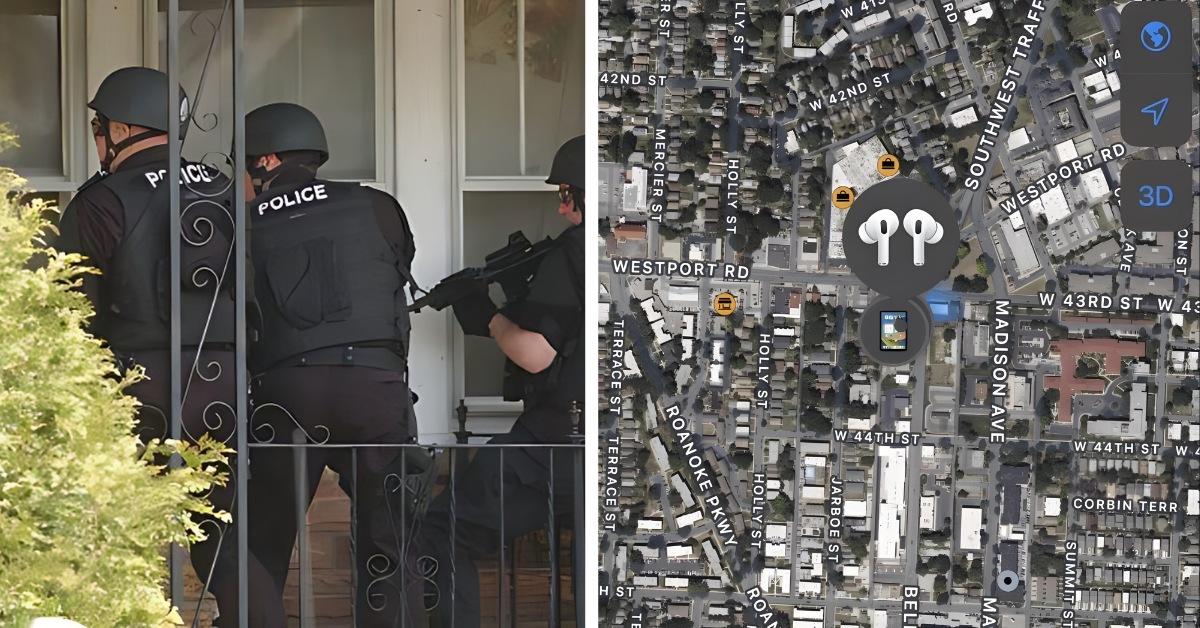The only thing the SWAT team found was a lawsuit waiting to happen.
A lawsuit against the St. Louis County SWAT team who raided an innocent family’s home last May 26, 2023 has been filed this March 2024.
This raid was led by the tracking of stolen AirPods to the home of Brittany Shamily and her family. Using just Find My’s information, the police broke into Shamily’s home and caused a lot of damage as they looked for proof connected to a car theft.
But, they didn’t find anything that would connect the family to these crimes.
SWAT Team’s Raid on an Innocent Family’s Home
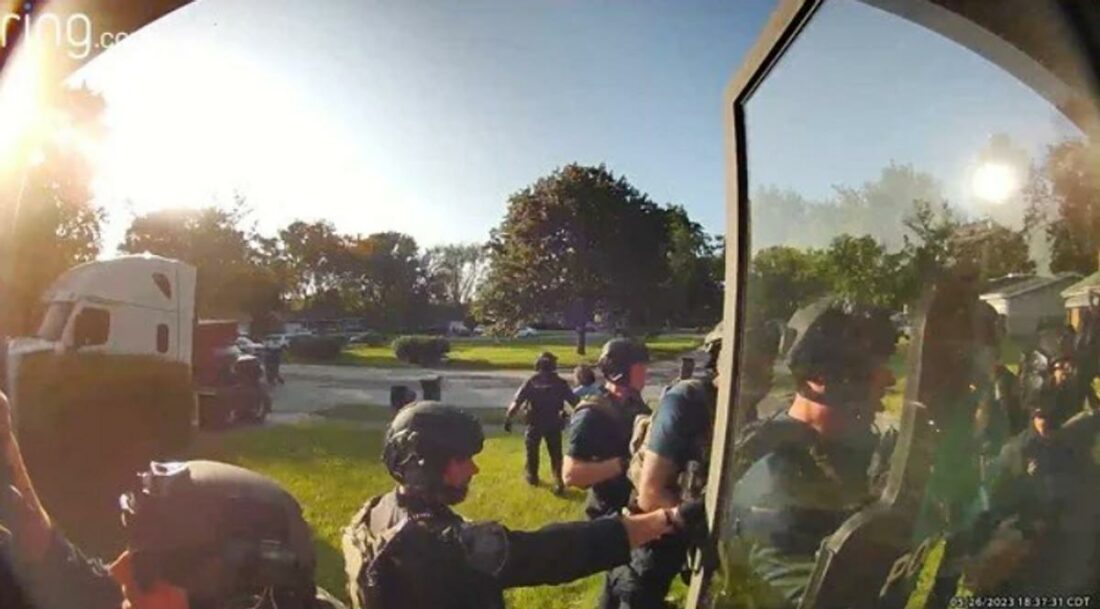
In May 2023, a SWAT team mistakenly targeted an innocent family’s house in Ferguson, St. Louis County, as they were following a signal from stolen AirPods using the Find My app.
It happened around 6:30 p.m. when Brittany Shamily was at home with her children, including a three-month-old infant. Suddenly, the police used a battering ram to break through her front door.
Body camera footage shows a terrified Shamily with her hands raised as the heavily armed SWAT team entered.
“What the hell is going on?” she screamed. “I got a three-month-old baby!”

The incident stemmed from a carjacking that occurred around 6 a.m. on May 26th, about 16 miles away in South County. Two brothers were leaving a Waffle House on Telegraph Road near Jefferson Barracks when a group of six individuals approached and carjacked them outside the restaurant.
Two of the carjackers fled the scene in the brothers’ stolen Dodge Charger, while the other four escaped in separate vehicles. St. Louis County Police were called to the scene.
During their investigation, a friend of the carjacked brothers informed officers that his AirPods were inside the stolen Charger and could potentially be tracked using Apple’s ‘Find My’ app, which allows locating one Apple device via another.
The Police then used the app’s tracking information, which according to the lawsuit, falsely indicated the AirPods were located at Shamily’s residence. However, their search found nothing incriminating.
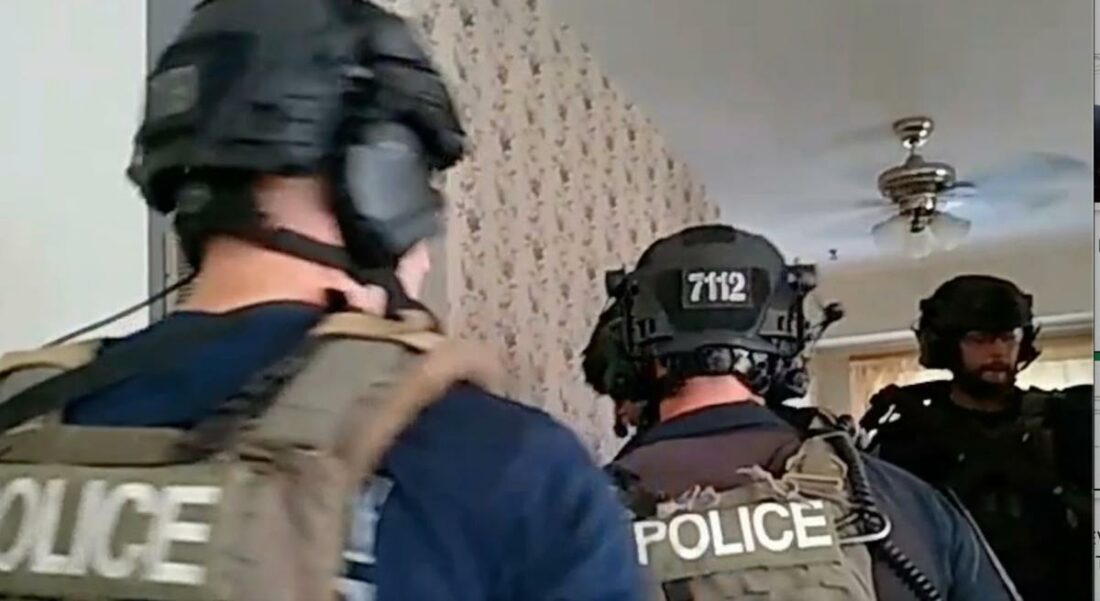
In the process, officers left the once orderly home in disarray – punching a basketball-sized hole in the drywall and breaking through a drop ceiling.
Importantly, the stolen AirPods that initiated the raid were recovered on the street, not inside the home as the ‘Find My’ app had indicated.
After this raid, the police allegedly told Shamily’s family to call the next day about repairing the damages but never followed through.
“The (Police) cut a big hole in the wall. They went down in the basement and cut some ceiling tile and after they figured out they had the wrong house.” says Bevis Schock, the family’s lawyer
“They said, ‘Call us tomorrow and we’ll send somebody out to fix it.’ So, the people called the next day. They said, ‘Oh yeah, we’ll come fix it,’ and of course they never did.”
The Lawsuit Over the Mistaken Raid
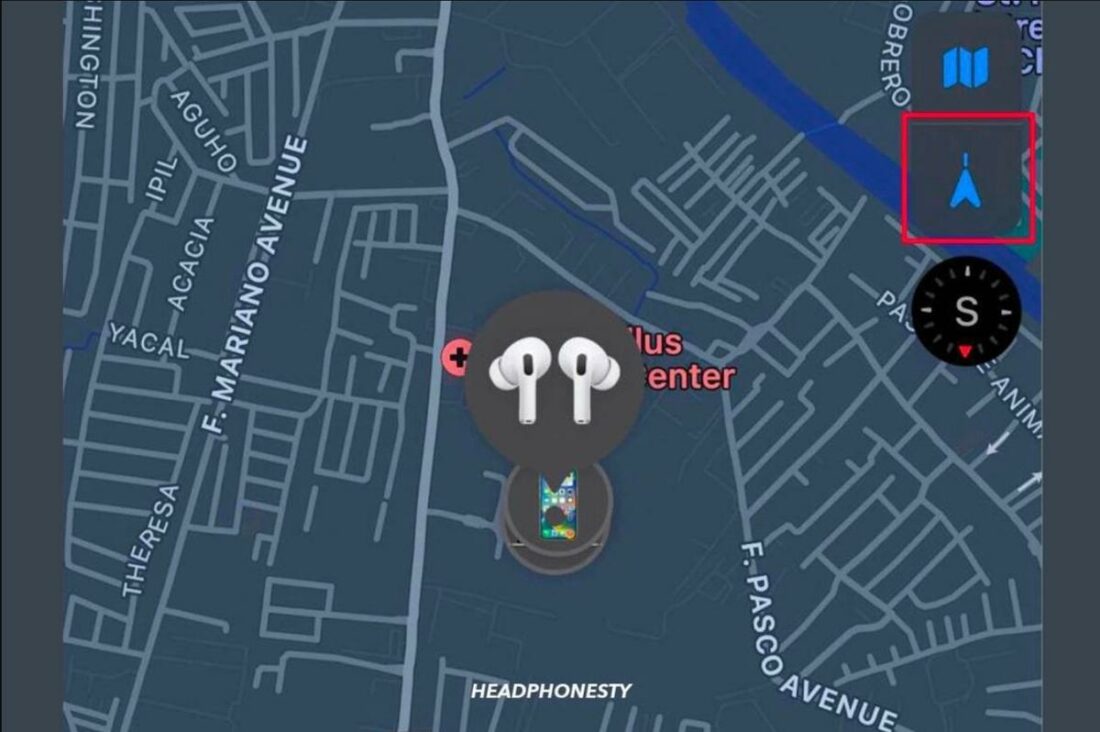
The Riverfront Times reported a lawsuit filed Friday on behalf of Shamily.
It alleges that the police obtained the search warrant based solely on the inaccurate tracking of the stolen AirPods through the “Find My” app. This ultimately led them inside Shamily’s home.
The lawsuit accuses officers of unreasonable use of force, violating the family’s liberty, and other factors stemming from the mistaken raid.
The event has led to wider talks on how trustworthy tools like the FindMy app are when used by the police.
Legal professionals are now questioning the reasons behind the raid. These discussions revolve around the tracking app’s reliability and what the cops claimed to justify their actions.
The app, designed to locate lost Apple devices such as AirPods, uses an encrypted, anonymous network of Apple devices to pinpoint lost items. However, the Ferguson raid shows the problems with using only this tech for exact spots, especially in big actions like SWAT.
Nicole Gorovsky, a former prosecutor, raised questions about how much the police said they trusted the app during a legal talk.
“Did [police] say that they had some knowledge that this FindMy iPhone app was more accurate than it actually was? Did they say that it meant that the AirPods at issue were actually in the house?” she asked.

“I am so curious about what this search warrant actually says.”
In the same talk, Dave Roland, the director of litigation at the Freedom Center of Missouri also weighed in. Here, he emphasized the need for clearer, stricter guidelines before taking such strong measures.
Similar Case in Denver
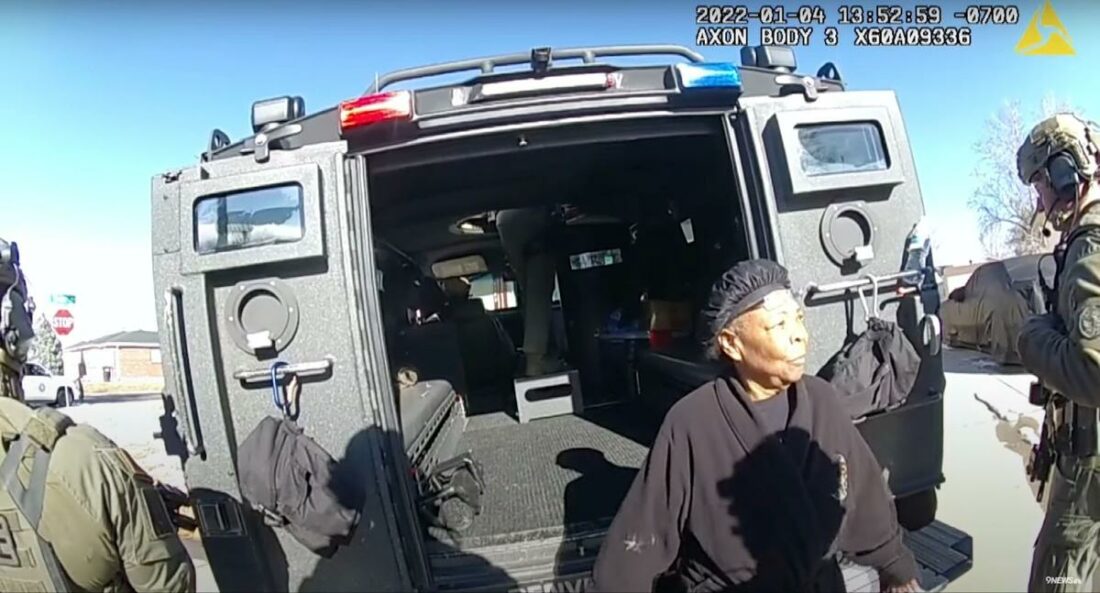
Unfortunately, law enforcement acting on inaccurate ‘Find My’ data is not new.
Back in January 2022, the Denver police raided a 77-year-old Ruby Johnson’s home after the app falsely pinged her residence as the location of a stolen iPhone.
A jury later awarded Johnson $3.76 million. They found that the officers violated her constitutional rights by hastily obtaining and executing the search warrant without proper investigation or probable cause.
The affidavit used to obtain the warrant contained incorrect information and misleading claims about the ‘Find My’ app’s location accuracy.
